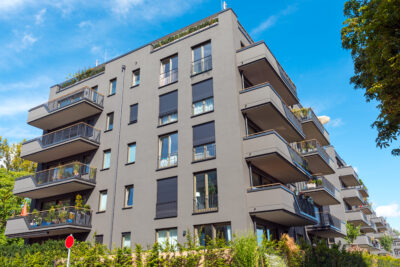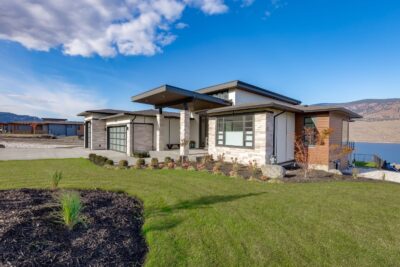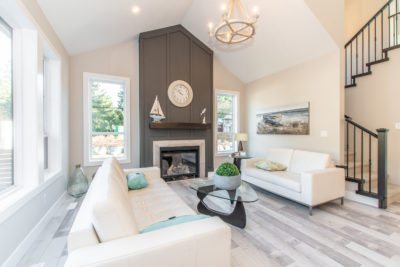
Want to build a house in BC? If you already started your research, you must already know it is no small feat. With rising land prices and ever-ballooning construction costs, increasing preference towards purchasing compared to building a home is a no-brainer.
But what if there’s a way to get the best of both worlds? The convenience and affordability that comes with buying a home, but still ending up with a new build that ticks all the marks of a “perfect home.”
Find out the cost to build a house in BC and how to end with the best deal without unnecessary strain!
Costs of a New House Build in BC

Like anywhere else, the cost of a new home build in BC depends on several factors. Location, contractor fees, cost of materials and even the homeowners’ preferred build design all play a role.
We get asked this question a lot. So, we’ve put together a quick reference chart below for what it looks like currently in the market for a 2100 square foot home, excluding lot costs, permits & connections fees:
| Municipality | Estimated Cost Per Square Foot | Estimated Total Build Cost on 2100 ft² |
| Vancouver | $350-$450/ft² | $735,000 – $945,000 |
| Kelowna | $325-$425/ft² | $682,500 – $892,500 |
| Surrey | $325-$400/ft² | $682,500 – $840,000 |
| Chilliwack | $275-$350/ft² | $577,500 – $735,000 |
| Kamloops | $275-$350/ft² | $577,500 – $735,000 |
| Nanaimo & Victoria | $275-$350/ft² | $577,500 – $735,000 |
The actual amount of a new home build in BC may differ according to build quality, materials used and even the lot’s location.
Still, other macro factors are at play in determining the total costs of a new home in BC. Supply chain inefficiencies that have been the norm the last couple of years, in addition to rising wages and subsequent runaway inflation, all play a part in cost.
Here’s an in-depth look at some of the factors that significantly affect the cost of a new home build in BC:
Contractor Fees
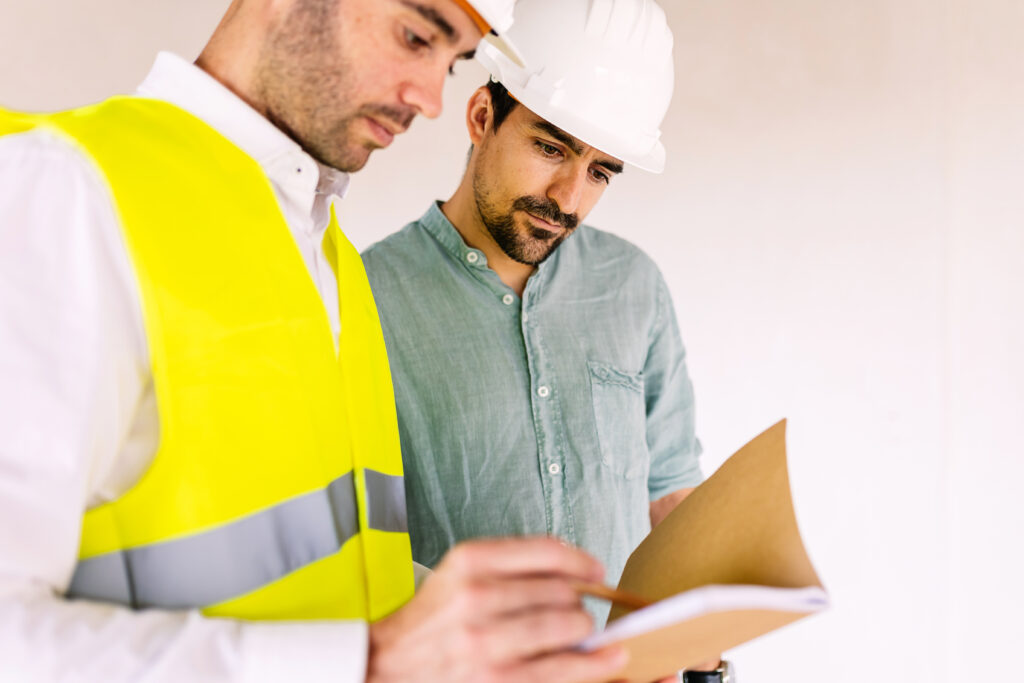
Contractor fees are a significant component of the overall cost. Just as the name suggests, are the amounts that go to the contractor in charge of the construction project. Generally, the fees vary based on their experience and reputation, as well as the size and complexity of the project.
Contractor fees are usually charged as a percentage of the total construction cost. This can range between 10-20 percent.
This fee typically covers managing and organizing the project, hiring tradespeople, scheduling and supervising subcontractors, and ordering materials. It also includes dealing with changes and issues that may arise during construction, and other necessary administrative tasks.
While contractor fees may be a tad bit expensive, they’re a sound investment. Especially if you consider the convenience and peace of mind they afford knowing the project is in the hands of capable professionals.
Beyond costs, it’s crucial to find someone or a firm that can be trusted with a large sum of money. Keep in mind that they’ll be responsible for overseeing all aspects of the new home build, from breaking ground to finishing touches.
A great starting point is looking for contractors with references and testimonials from previous clients. If possible, ask some of their clients about their experiences working with them directly.
It’s also helpful if they have a firm grasp on the kinds of materials and finishes that would work best within budget. This will prove crucial in guiding decisions like choosing between two different flooring options or deciding whether to install energy-intensive AC versus focusing on insulation and a less energy-intensive AC.
Cost of Land/ Construction Lot
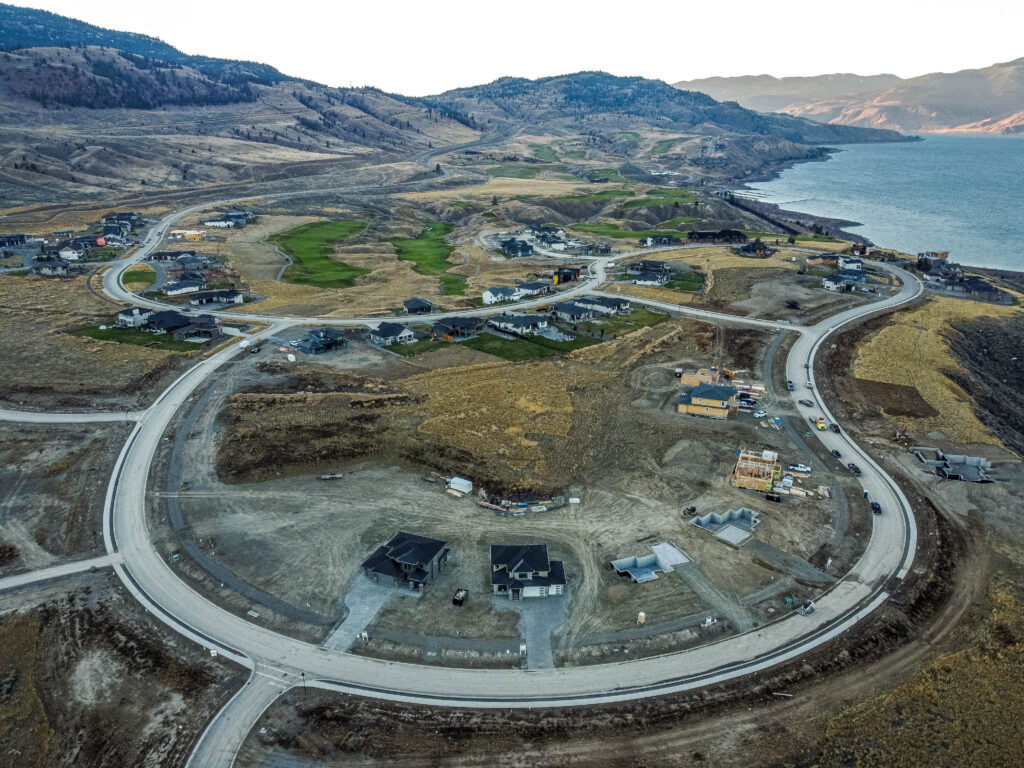
Famous for its picturesque landscapes, British Columbia land is some of the most expensive in Canada. Lot costs as of January 2023 being in the range of $700,000 – $1,200,000 on average in the Fraser Valley.
Aside from the obvious value for money, getting a piece that matches any budget is possible. Also, the cost of land is primarily influenced by location and size. So, land in rural areas tends to cost lesser than those in more urban settings.
Other factors like availability or proximity to utilities and public amenities come in but to a smaller extent.
Additionally, fully serviced land costs more than raw or otherwise “untouched” land. For example, one that has all the necessary utilities and amenities like electricity, water supply, and sewer connection will be more expensive.
Regarding size, many people assume smaller parcels cost less than large ones. In most cases, this holds. However, this isn’t always the case. It’s the reason working with an established home builder may save new homeowners a couple of dollars.
Unlike other commodities, the land supply is limited, and the cost keeps increasing each year.
Value Proposition of Serviced vs Raw Land
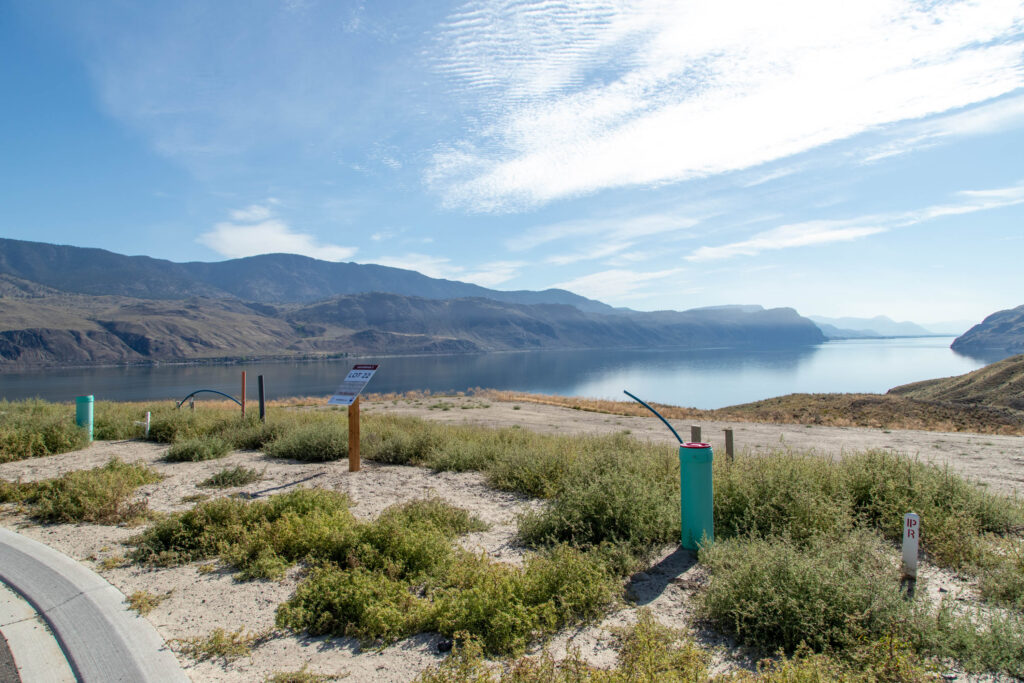
At first glance, serviced land may come off as unreasonably priced than the alternative of purchasing raw land and building a house on it. But is it?
Unless the plan is to live entirely off the grid, certain utilities must be available onsite before starting construction. This includes things like electricity, gas, water, sewerage and phone line connections.
It’s essential to get an estimate of these costs before starting the new home build so they can be factored into the project’s budget.
The electricity and gas installation costs will depend on the demand needs in the property. The larger the property and the more the demand, the higher the costs.
The cost of water will also depend on the desired location. It may be necessary to drill a well or source water from other alternatives if it’s in a rural area. This can be pretty costly initially but affordable in the long run as the huge outlay can be justified by the cost savings over the years.
Additional costs must also be factored in to cater for applicable permits. At the very least, these could quickly run into thousands of dollars.
In contrast, established home builders benefit from economies of scale when they purchase land in bulk, partition it and develop necessary utilities on each lot.
Even if the plan is to develop the property on their own, new homeowners are better off with serviced land. The cost savings and convenience are just too good to pass by.
Current Costs of Materials/ Upgrades for a House Build in BC
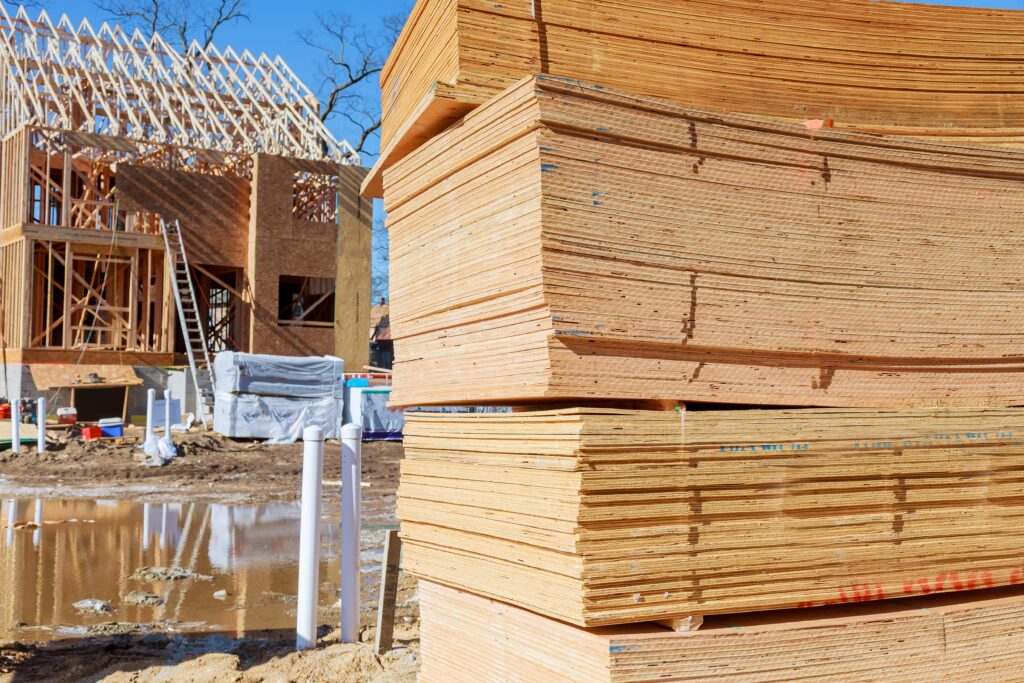
The cost of construction materials significantly affects the final cost of the new home build. Depending on the size of the house, the type of materials used, and any extra features want, the costs can vary greatly.
The average cost to build a home in BC, excluding lot costs, utility connection fees, permits, etc, costs an average of $275-$450/ft². On average, a home build of 2100 ft² would be between $577,500 – $945,000.
Finishes add character, style and appeal to a house. In most cases, refer to flooring, fixtures, cabinetry, countertops, paint, window coverings and tile work.
Depending on the type and preferred quality of finishes, this can be one of the costliest aspects of building a house in BC.
If you’re looking for alternatives to custom millwork, laminate flooring, prefabricated cabinets, recycled glass, and vinyl window coverings are the best way to go.
Costs and Hassles of Acquiring Required Permits to Build a House in BC

Costs of permits for building a new home in BC ranges depending on what’s necessary in each municipality. On average, you should ballpark around $4,000-$6,000 range.
The world over, permits and the accompanying fees apply in any construction project. Usually, it’s meant to be a source of revenue for the authorities and to ensure the project is conducted in a manner that observes standing regulations for the general public’s safety.
Depending on the municipality in which the house is to be built, different permits and fees may be required to construct a home legally.
The cost of these permits varies widely and depends on the size and type of the house, the materials used and other factors like construction methods.
Typically, these can cost anywhere from 100 to several thousand dollars or more in BC. Moreover, additional permits may be required from regional districts and other local governing bodies.
Most of the permits are non-negotiable, and it goes without saying non-compliance could easily cause friction with authorities.
With many things weighing down on them, there’s a high probability of a potential homeowner missing one or several permits. Unfortunately, the law can be quite unforgiving and ignorance isn’t an adequate defence. Innocent or not, non-compliance will always be treated as willful.
Delegating this task to an experienced contractor is the only way to ensure the project has all the necessary permits and that they’re processed early enough to avoid delays.
Services & utility connection costs
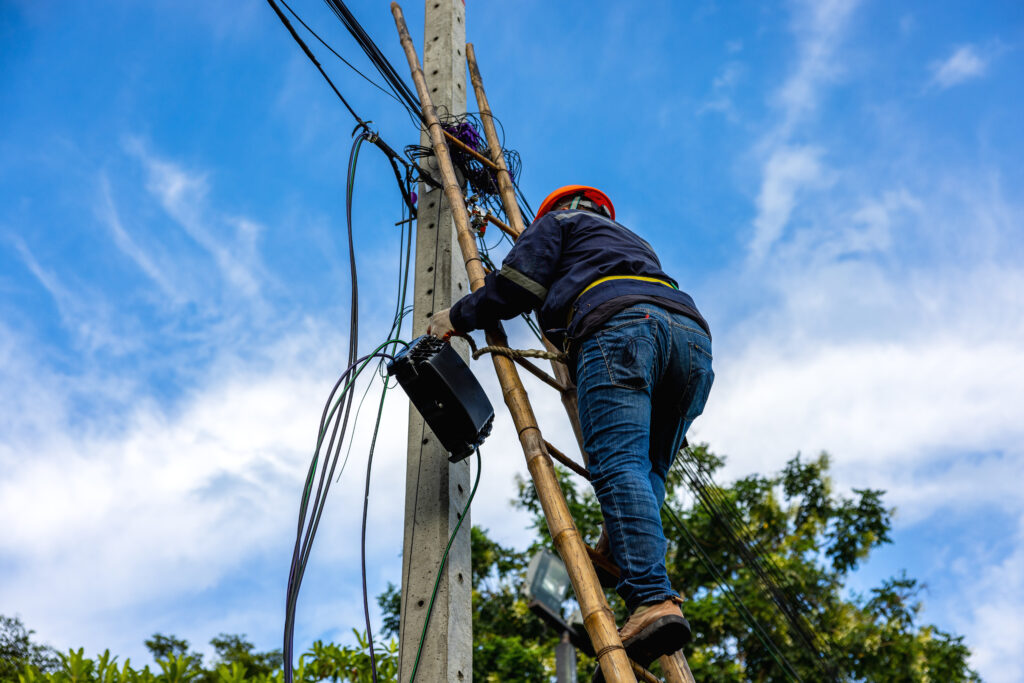
Although you may have Pinterested different designs and layouts and have a pretty good idea on what you’re looking at building and roughly how much it costs to build, there’s still more to think about. Don’t forget, you need to get that new home connected to the grid.
Costs for this depend on where you’re building in BC and who your primary utility, power, gas, municipal sewer/water (or even well & septic), and internet.
Cost to connect utilities may vary on supplier, here are the average rates in BC to connect up to the grid:
- BC Hydro: ≈ $1,200 + materials, meter, permits, etc. May be extra depending on installation of nearest pole, etc.
- Fortis Electric: ≈ $800 + materials, meter, permits, etc. May be extra depending on installation of nearest pole, etc.
- TELUS & Shaw: ≈ $100-$10,000+ depending on the location of the nearest service pole/network.
- City water & sewer: ≈ $350 – $3,000 + 100% of the actual municipal connection costs. Depending on municipality
- Well water: ≈ $10,000 – $30,000 (provided you hit water the first drill)
- Septic system: ≈ Type I $10,000 to $20,000, type II $20,000 to 30,000, type III $30,000 – $50,000
These are just a few utility connection costs to keep in mind when building your home. Working with reputable developers, they’ll have this leg work taken care of already.
Government Kickbacks and Incentives for Building a House in BC
We’ve been at the forefront in building new homes that are energy efficient and affordable. New home builds are great for the economy. For new homeowners, the joy that comes in seeing their dream home built beyond their expectations is unmatched.
As of today, British Columbia is suffering an acute housing crisis. As the most unaffordable province for potential new homeowners in Canada. The cause has been attributed to numerous reasons, but supply mismatch tops the list.
In response, the government has launched several initiatives to try and reduce the cost of building a home in BC.
Thanks to government kickbacks and incentives, building a house in BC can prove to be an affordable endeavour and the best investment decision.
Here’s a quick rundown on the current government kickbacks and incentives on new home builds in BC:
1. First-Time Home Buyer’ Program
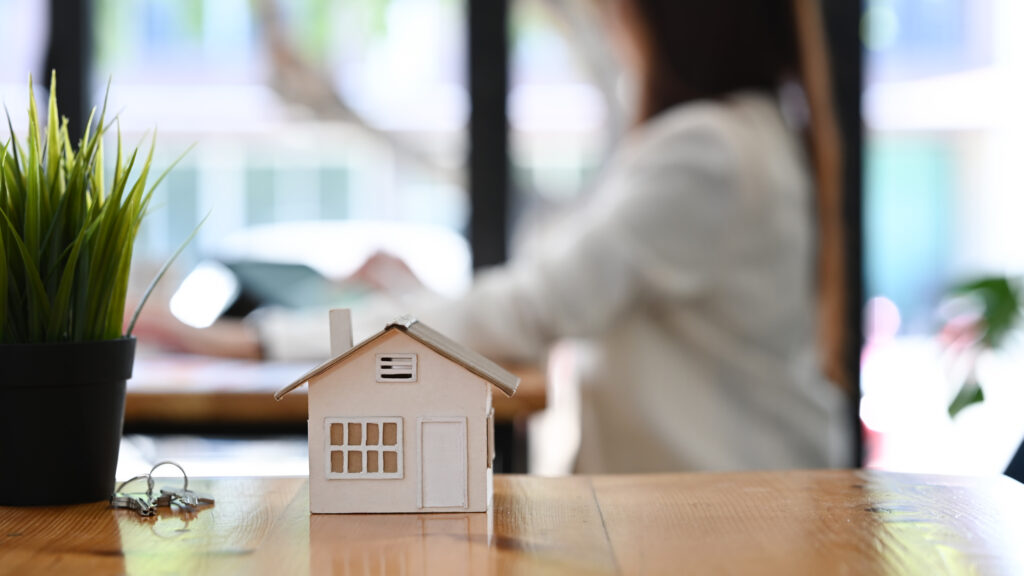
The First-Time Home Buyer Incentive (FTHBI) is a program designed by the Canadian government. It is meant to help first-time home buyers afford their first home.
Under the initiative first time home buyers can enjoy partial or full tax exemption on their new home purchase.
This initiative was introduced in 2019 to help ease the burden on first-time home buyers struggling to afford their first home in Canada. It is available in British Columbia and all other provinces and territories across the country.
2. Home Buyers’ Amount

The Government of British Columbia created the Home Buyers’ Amount (HBA) initiative to provide first-time homebuyers with financial support when purchasing or building a new home.
Under the program, eligible individuals are entitled to receive a non-refundable tax credit capped at $5,000 for homes in designated areas of the province. To qualify for this incentive, applicants must meet specific criteria touching on residence, employment and total income.
The HBA is intended to help first-time home buyers cover a portion of the purchase price and closing costs associated with purchasing their first home. Furthermore, the program helps make it more affordable for new home buyers to enter the housing market and get on the property ladder.
Contact the local government office or visit the BC government website for more information about the incentive and find out the eligibility requirements
3. Better Homes New Construction Program
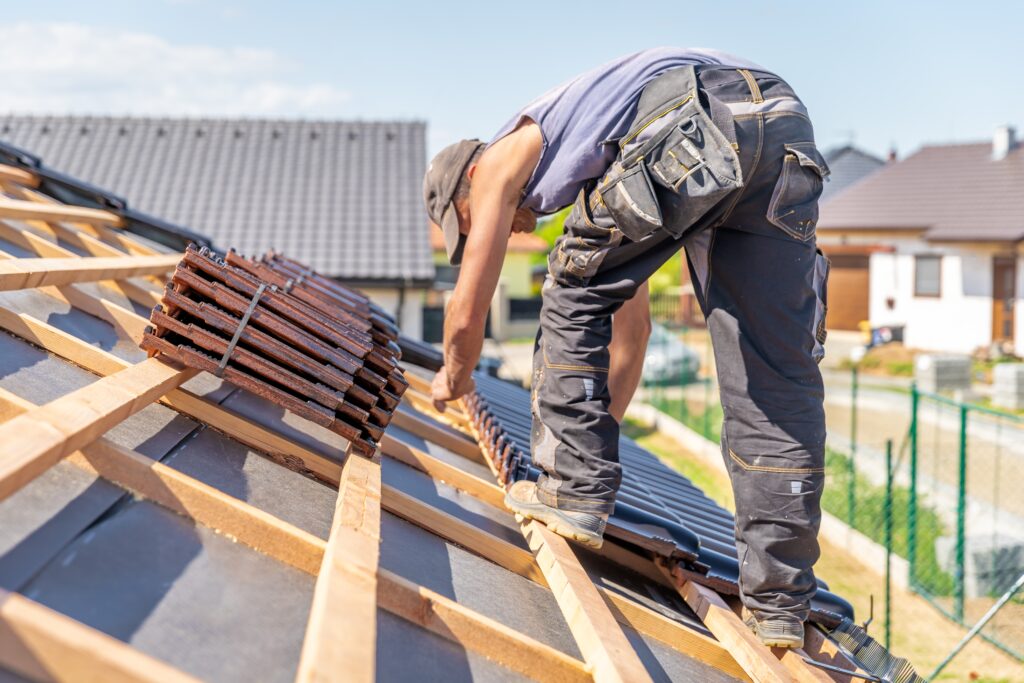
The Better Homes New Construction Program is a British Columbia government initiative that provides incentives for new home builds in a specific part of the province.
It was launched in 2017 and provides homeowners with up to $15,000 towards the cost of building a new home in an eligible area. Eligible homes are those that are either single-family, laneway, duplex, triplex or town homes.
They must also be within BC Hydro service territory, and the construction has to be approved before construction.
The amount provided by the program can go towards different costs associated with building a new home. This includes land acquisition costs, builder’s fees, materials, construction financing and more.
4. BC Step Code Program
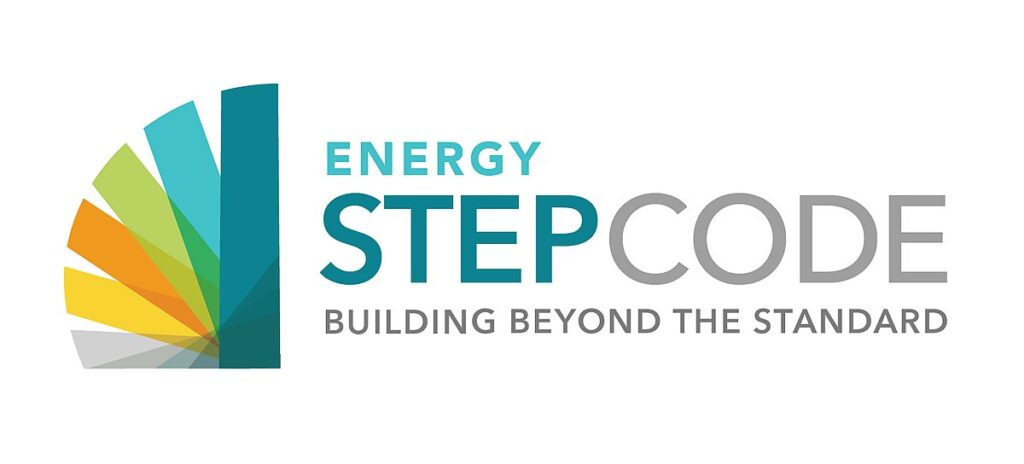
It’s a voluntary provincial program that offers incentives to encourage builders to construct more energy-efficient homes.
Established in 2008, the program’s goal was to improve new homes’ energy efficiency over time and reduce the emissions associated with new construction.
BC Step Code is divided into five progressive steps, each representing an increase in energy efficiency over the previous one. Builders who choose to build to a step higher than the base code are eligible for grants and rebates from the government, as well as recognition and marketability of their energy-efficient homes.
The program is designed to give builders the flexibility to choose how they build while providing incentives for those who choose to build more energy-efficient homes. It is part of the province’s long-term strategy for transitioning to net-zero energy-ready homes by 2032.
Numerous government kickbacks and similar incentives exist. An established home builder can provide the best advice and assistance regarding how to access and utilize such incentives.
Final Thoughts
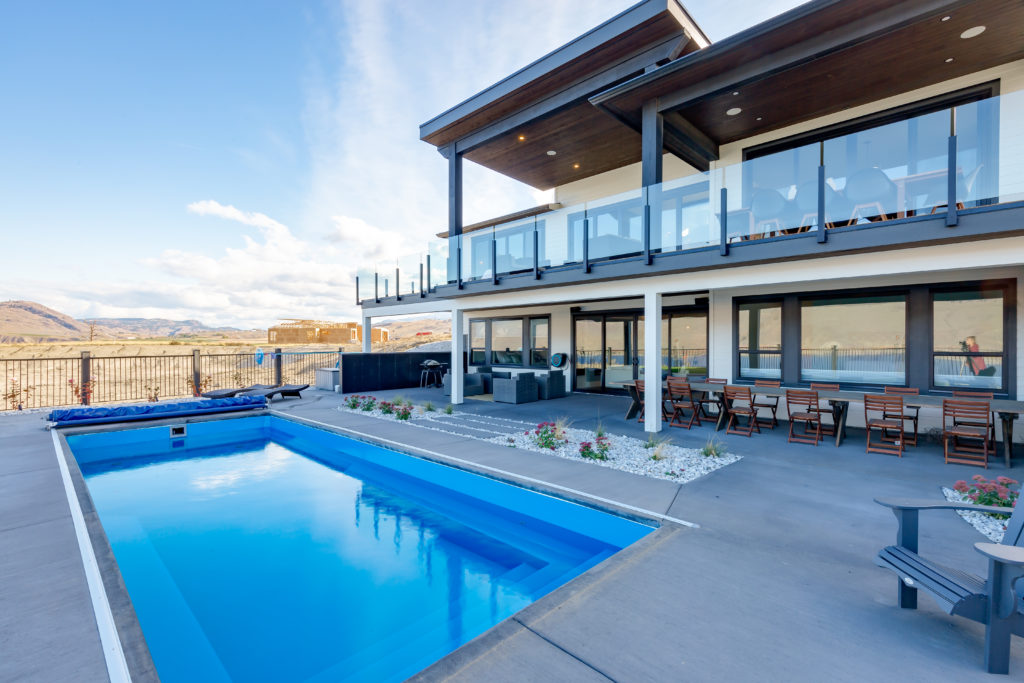
For most people, building or buying their first home is a significant achievement, and rightly so. It’s a solid investment that, if done right, pays off for years to come.
Similarly, the costs of a new home build or purchase can be staggering if anyone goes at it blindly. A new home build is most preferable but budget is a huge limitation in most cases.
With an established home builder, it’s possible to save on costs and end up with a dream home without unnecessary drama or hassles.
Get in touch with Cressman homes for a free consultation today.

